| Listing 1 - 10 of 24 | << page >> |
Sort by
|
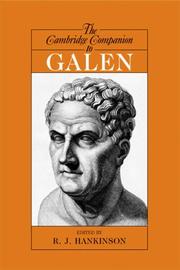
ISBN: 9780521525589 9780521819541 0521819547 0521525586 9781139001908 Year: 2008 Volume: *3 Publisher: Cambridge Cambridge University Press
Abstract | Keywords | Export | Availability | Bookmark
 Loading...
Loading...Choose an application
- Reference Manager
- EndNote
- RefWorks (Direct export to RefWorks)
Galenus, Claudius --- Galen. --- Galen --- Galenus, Claudius. --- Galenus --- Galen, Claudius --- Galen, --- Galénos --- Galeno --- Galen, Klavdiĭ --- Galinus --- Galiʼenus --- Galiʼeno --- Galiʼenu --- Galien, --- Galeno, Claudio --- جالينوس --- Γαλῆνος --- Galênós, --- Pseudo-Galenus --- Biographies --- History of medicine --- Greek-roman --- 460bc-576ad --- North America --- Biographies. --- 460bc-576ad. --- North America. --- Claudius Galenus --- Galien, Claude --- Galeni
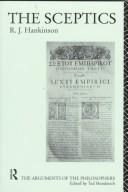
ISBN: 0415047722 9780415047722 Year: 1995 Publisher: London Routledge
Abstract | Keywords | Export | Availability | Bookmark
 Loading...
Loading...Choose an application
- Reference Manager
- EndNote
- RefWorks (Direct export to RefWorks)
Skeptics (Greek philosophy) --- Philosophy, Ancient --- Skeptics (Greek philosophy).
Book
ISBN: 0920980325 Year: 1988 Publisher: Canada : Canada. Academic printing and publishing,
Abstract | Keywords | Export | Availability | Bookmark
 Loading...
Loading...Choose an application
- Reference Manager
- EndNote
- RefWorks (Direct export to RefWorks)
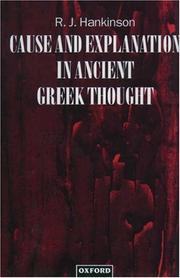
ISBN: 0198237456 0199246564 0191597570 9780199246564 Year: 1998 Publisher: Oxford : Clarendon Press,
Abstract | Keywords | Export | Availability | Bookmark
 Loading...
Loading...Choose an application
- Reference Manager
- EndNote
- RefWorks (Direct export to RefWorks)
This work traces the history of ancient Greek thought about causation and explanation. It examines ways in which they dealt with questions about how and why things happen, about the constitution and structure of things, laws of nature, and more.
Ancient philosophy --- Antieke filosofie --- Filosofie [Antieke ] --- Filosofie [Griekse ] --- Filosofie [Romeinse ] --- Filosofie van de Oudheid --- Greek philosophy --- Griekse filosofie --- Philosophie ancienne --- Philosophie antique --- Philosophie de l'Antiquité --- Philosophie grecque --- Philosophie romaine --- Philosophy [Ancient ] --- Philosophy [Greek ] --- Philosophy [Roman ] --- Roman philosophy --- Romeinse filosofie --- Causation --- -Explanation --- -Philosophy, Ancient --- Philosophy, Greek --- Philosophy, Roman --- Explanation (Philosophy) --- Knowledge, Theory of --- Causality --- Cause and effect --- Effect and cause --- Final cause --- Beginning --- God --- Metaphysics --- Philosophy --- Necessity (Philosophy) --- Teleology --- History --- Explanation --- Philosophy, Ancient --- Causalité --- Explication --- Histoire --- Philosophy, Ancient. --- History.
Book
ISBN: 0715632310 1472557425 9780715632314 9781472557421 9781472501110 147250111X 1472552245 Year: 2014 Publisher: London : Bloomsbury,
Abstract | Keywords | Export | Availability | Bookmark
 Loading...
Loading...Choose an application
- Reference Manager
- EndNote
- RefWorks (Direct export to RefWorks)
Aristotle argues in On the Heavens 1.5-7 that there can be no infinitely large body, and in 1.8-9 that there cannot be more than one physical world. As a corollary in 1.9, he infers that there is no place, vacuum or time beyond the outermost stars. As one argument in favour of a single world, he argues that his four elements: earth, air, fire and water, have only one natural destination apiece. Moreover they accelerate as they approach it and acceleration cannot be unlimited. However, the Neoplatonist Simplicius, who wrote the commentary in the sixth century Ad (here translated into English), tells us that this whole world view was to be rejected by Strato, the third head of Aristotle's school. At the same time, he tells us the different theories of acceleration in Greek philosophy.
Aristotle. De caelo. 1.5-9. --- Cosmography -- Early works to 1800. --- Cosmology -- Early works to 1800. --- Kosmologie. --- Neuplatonismus. --- Cosmology, Ancient. --- Physics --- Aristotle. --- Aristotle --- Aristoteles, --- Cosmologie antique --- Cosmology, Ancient --- Astronomie antique --- Astronomy, Ancient --- Mécanique céleste --- Celestial mechanics --- Aristote, --- Cosmologie antique. --- Astronomie antique. --- Mécanique céleste. --- Cosmology --- Aristote --- Aristoteles, - 0384-0322 av. J.-C. --- Mécanique céleste.

ISBN: 1281989010 9786611989019 0191519219 9780191519215 9780191597572 0191597570 0198237456 0199246564 9780198237457 Year: 1998 Publisher: Oxford Oxford New York Clarendon Press Oxford University Press
Abstract | Keywords | Export | Availability | Bookmark
 Loading...
Loading...Choose an application
- Reference Manager
- EndNote
- RefWorks (Direct export to RefWorks)
Causation --- Explanation --- Philosophy, Ancient. --- Ancient philosophy --- Greek philosophy --- Philosophy, Greek --- Philosophy, Roman --- Roman philosophy --- Explanation (Philosophy) --- Knowledge, Theory of --- Causality --- Cause and effect --- Effect and cause --- Final cause --- Beginning --- God --- Metaphysics --- Philosophy --- Necessity (Philosophy) --- Teleology --- History.
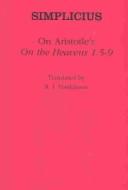
ISBN: 0801442125 Year: 2004 Publisher: Ithaca, N.Y. Cornell University Press
Abstract | Keywords | Export | Availability | Bookmark
 Loading...
Loading...Choose an application
- Reference Manager
- EndNote
- RefWorks (Direct export to RefWorks)
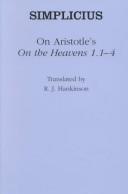
ISBN: 0801439078 Year: 2002 Publisher: Ithaca, N.Y. Cornell University Press
Abstract | Keywords | Export | Availability | Bookmark
 Loading...
Loading...Choose an application
- Reference Manager
- EndNote
- RefWorks (Direct export to RefWorks)

ISBN: 0801442168 9780801442162 Year: 2006 Publisher: Ithaca, N.Y. Cornell University Press
Abstract | Keywords | Export | Availability | Bookmark
 Loading...
Loading...Choose an application
- Reference Manager
- EndNote
- RefWorks (Direct export to RefWorks)
Article
Abstract | Keywords | Export | Availability | Bookmark
 Loading...
Loading...Choose an application
- Reference Manager
- EndNote
- RefWorks (Direct export to RefWorks)
| Listing 1 - 10 of 24 | << page >> |
Sort by
|

 Search
Search Feedback
Feedback About UniCat
About UniCat  Help
Help News
News